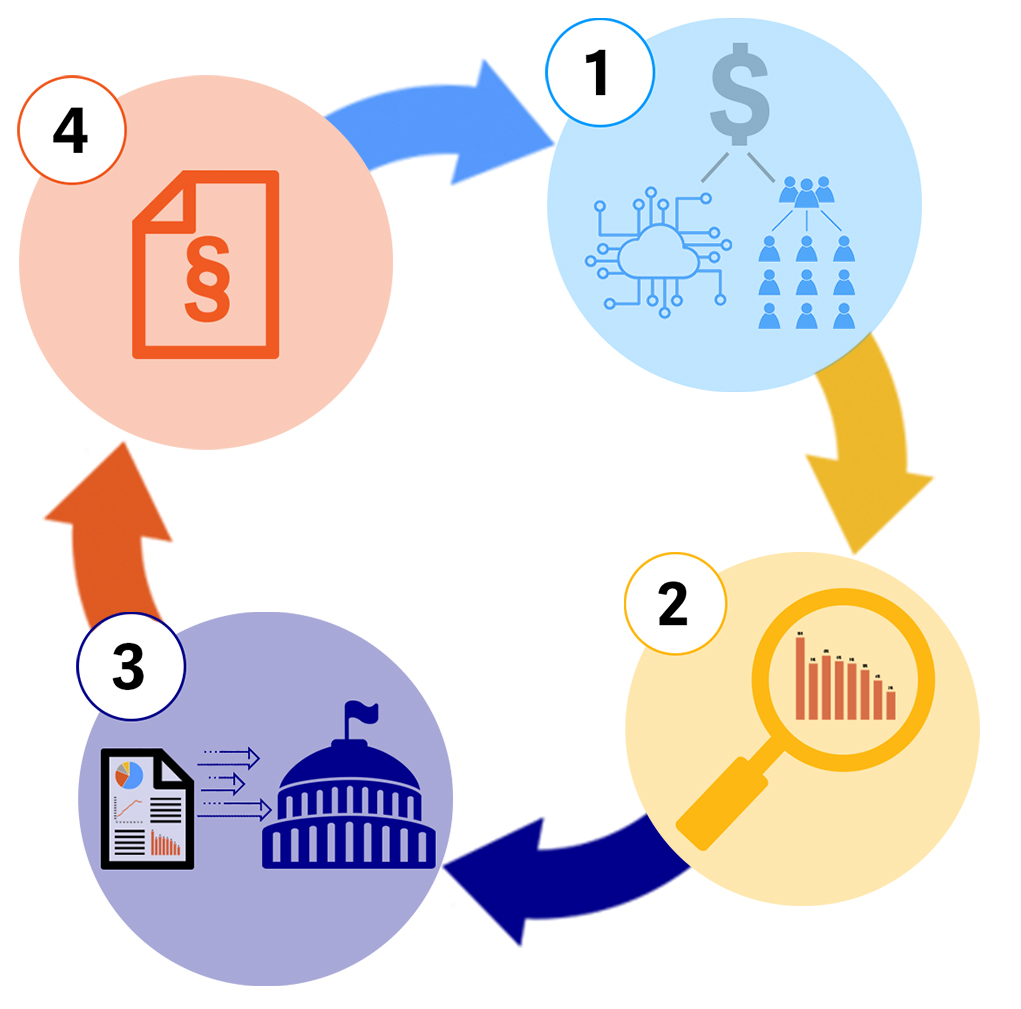Part 3, Strategy 4
Action Item 2: Establish responsibility for reporting and monitoring results.
Why it matters
Not all states that implement criminal justice system changes require agencies to regularly report performance data nor do they have a designated committee or task force of legislators and other key decision makers who are responsible for monitoring the results of these changes. Without a designated legislative or interbranch committee tasked with holding agencies accountable for providing reports and monitoring performance and outcomes, states cannot ensure that policymaking remains data-driven.
What it looks like
- Identify agencies that are responsible for tracking key measures and metrics and create a process for them to regularly report data.
- Establish a leadership body responsible for holding agencies accountable for reporting data, monitoring results, and providing recommendations for improvement.
- See Case Study: States establish responsibility for performance monitoring
Key questions to guide action
- Are agencies currently required by statute, administrative rule, executive order, or other means to publish regular reports on performance and outcomes?
- Is there an established legislative committee or other collaborative oversight body responsible for monitoring data and results to inform policymaking?
Use the information that follows to inform your answers to these questions.
States must invest in technology infrastructure and agency personnel to track the impacts of policy changes and to inform future policymaking.

Case Study
States establish responsibility for performance monitoring
Tracking performance measures isn’t enough. To ensure agencies are held accountable for results and for policymakers to use data to inform decision making, correctional agencies need to report to policymakers on performance measures. For example, Idaho, Kansas, and North Carolina require their corrections departments to report to the legislature on implementation of key elements of their Justice Reinvestment legislation on an annual basis.
Many states have included further requirements in statute or in a governor’s executive order to create an implementation oversight body tasked with monitoring results.
- Arkansas’s 2017 Justice Reinvestment legislation established an Interagency Task Force responsible for reviewing performance and outcome reports that must be submitted by agencies and preparing an annual report for the Legislative Council, governor, and Chief Justice of the Supreme Court, which will include recommendations for improvement and a summary of public safety impacts and savings generated.
- In 2013, Georgia established the Council on Criminal Justice Reform to produce a report each year tracking progress on the state’s Justice Reinvestment policies, review criminal justice policies and practices, and make additional policy recommendations.
- In 2017, Montana’s Justice Reinvestment legislation established an Oversight Council that is required to review data and outcomes provided by agencies, produce a biennial report, and make recommendations for additional legislation to the governor and legislature.
- South Dakota’s 2013 Justice Reinvestment legislation established an oversight council responsible for reporting on performance and outcome measures related to the legislation. The 13-member oversight council has members from all three branches of government and is required to report annually to the legislature, governor, and chief justice on key performance measures, provide a summary of savings generated by the policy changes in the legislation, and recommend improvements.
Other states task existing agencies or commissions with reporting on outcomes and monitoring responsibilities. In Alabama, the Sentencing Commission produces an annual report on sentencing trends and prison population data and is responsible for making recommendations to the governor, legislature, attorney general, and judiciary on matters related to sentencing and jail and prison capacity.
